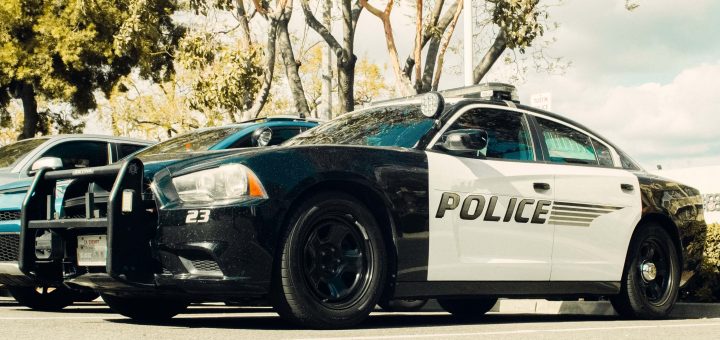“Forthwith” Means “Forthwith”: SCC Grants Leave in Her Majesty the Queen v Pascal Breault

Is a police officer’s demand to provide a breath sample valid if they do not have an approved screening device (“ASD”) in their possession when making the demand? In Breault c R, 2021 QCCA 505 [Breault], the Court of Appeal of Quebec (“QCCA”) found that a demand for a breath sample is invalid without the police possessing an ASD and acquitted the appellant Pascal Breault, reversing the decisions of the lower courts. On November 18, 2021, the Supreme Court of Canada (“SCC”) granted the Crown’s leave to appeal.
Facts
On April 2, 2017, around 1:30 pm, police officers Atkins and Côté-Lemieux received a phone call from trail patrollers who informed them that an individual was driving an all-terrain vehicle (“ATV”) while drunk (Breault, para 9). Shortly after arriving at the scene, officer Atkins stopped Mr. Breault, who had abandoned his vehicle and was walking away. When stopped, Mr. Breault, who smelled strongly of alcohol , claimed that he had not been driving the ATV and instead claimed that the driver was a lady who was also walking away (Breault, para 10). Officer Atkins asked the appellant whether he had consumed alcohol, and Mr. Breault replied that he had one beer and repeated that he had not been driving the ATV (Breault, para 11).
Because the officers did not have an ASD in their possession, officer Atkins radioed for one. At 1:41 pm, a police officer in another area responded to officer Atkins that he would bring him one. In testimony, both officer Atkins and Côté-Lemieux estimated that it would have taken the police officer approximately 10 minutes to deliver the ASD, with officer Atkins adding that a 15-minute delay was also possible (Breault, para 12).
Officer Atkins further testified that because he had reasonable suspicion to believe that Mr. Breault drove the ATV while impaired by alcohol and because he wanted to save time, he ordered him to provide a breath sample using the ASD without possessing the device. At 1:41 pm, officer Atkins explained the consequences of refusing to Mr. Breault and also denied his demand to speak with his lawyer as he was not under arrest. At 1:45 pm, officer Atkins requested a breath sample using an ASD, and Mr. Breault refused three times, each time stating that he did not drive the ATV. He refused one final time at 1:53 pm; the ASD still had not arrived by then (Breault, para 13). After this refusal, the police officers placed Mr. Breault under arrest for refusing to provide a breath sample (Breault, para 14). At 2:00 pm, the police officers cancelled their request for an ASD.
The Charge and the Law
Mr. Breault was charged with failing to comply with a peace officer’s demand under s. 254(2) of the Criminal Code, R.S.C., 1985, c. C-46 [Code], thereby committing an offense punishable on summary conviction under s. 254(5). Section 254(2) states:
254(2) If a peace officer has reasonable grounds to suspect that a person has alcohol or a drug in their body and that the person has, within the preceding three hours, operated a motor vehicle or vessel, operated or assisted in the operation of an aircraft or railway equipment or had the care or control of a motor vehicle, a vessel, an aircraft or railway equipment, whether it was in motion or not, the peace officer may, by demand, require the person to comply with paragraph (a), in the case of a drug, or with either or both of paragraphs (a) and (b), in the case of alcohol:
[…](b) to provide forthwith a sample of breath that, in the peace officer’s opinion, will enable a proper analysis to be made by means of an approved screening device and, if necessary, to accompany the peace officer for that purpose. [Emphasis added.]
Section 254(5) states:
254(5) Everyone commits an offence who, without reasonable excuse, fails or refuses to comply with a demand made under this section.
The Issues on Appeal to the QCCA
The QCCA in Breault addressed two issues to make their decision:
- Was the police officer’s demand valid, i.e., compliant with the legal requirements?
- Did Mr. Breault’s refusal constitute a criminal offence when the police officers did not have an ASD in their possession?
The Lower Courts
The Municipal Court of the City of Quebec (“Municipal Court”) cited Petit c R, 2005 QCCA 687 [Petit] and R c Piazza, 2018 QCCA 948 [Piazza] and found that a waiting period of up to 15 minutes could be allowed until the police officer has to make the demand , depending on the circumstances (Breault, para 20). The judge found that the 4-minute delay between 1:41 pm, when suspicions arose and when officer Atkins ordered the device, and 1:45 pm, when officer Atkins made the first demand, satisfied the immediacy requirement. Regarding the absence of the ASD, the judge cited R v Degiorgio, 2011 ONCA 527 to conclude that the validity of the demand does not depend on the presence of an ASD at the time the peace officer makes the demand (Breault, para 20). Based on those reasons, the Municipal Court found Mr. Breault guilty of committing an offense under s. 254(5) of the Code. Mr. Breault appealed to the Superior Court of Quebec (Breault c R, 2020 QCCS 1597), but his appeal was dismissed, with Justice Pronovost stating that “this appeal [was] merely a necessary step on the way to the Court of Appeal” to challenge the case law that the Municipal Court judge relied on (Breault, para 21).
The QCCA’s Decision
Compliance with Legal Requirements
The first issue that the QCCA considered was whether the demand made by officer Atkins was compliant with the legal requirements (Breault, para 32). In this case, s. 254(5) sets out the offence, but the demand must be valid within the meaning of subsection (2) for the refusal referred to in subsection (5) to result in criminal liability (Breault, para 30).
The QCCA relied on Piazza, which considered the lawfulness of the demand under subsection (2) where a police office does not have the means with which to extract a sample “forthwith.” The court in Piazza asked: “If it is not possible to respond forthwith, does the demand remain lawful and can the refusal to comply constitute an offence?” (Breault, para 34). After considering SCC jurisprudence, the court in Piazza concluded the SCC has not attributed to the word “forthwith” a greater duration than what is necessary to obtain a proper breath sample (Breault, para 34).
In addition to relying on Piazza, the QCCA reasoned that Parliament’s use of the word “forthwith” must be understood in its ordinary sense unless the facts indicate “unusual” circumstances that may justify a brief delay to ensure the reliability of the test (Breault, para 37). The QCCA further clarified that the mere need to wait for the arrival of an ASD does not constitute an “unusual” circumstance that warrants a short delay (Breault, para 40). In other words, the widely accepted meaning of the word “forthwith” cannot be disregarded for administrative convenience alone (Breault, para 39).
The QCCA also noted that for the demand to be valid, the police officer must “be in a position to” demand a breath sample forthwith before the accused has the time to contact counsel, meaning that the police officer must have immediate access to an ASD (Breault, para 42). Because the right to contact counsel is intertwined with the immediacy requirement, the need to allow time for an ASD to be delivered is not a valid reason for a short delay (Breault, para 46).
The Issue of Possessing an ASD
The second issue that the QCCA considered was whether Mr. Breault’s refusal to provide a breath sample constituted a crime even though the police officers did not have an ASD in their possession. The SCC in R v Woods, 2005 SCC 42 stated that “[i]t is not only the demand that must be made forthwith; the driver must also provide a breath sample forthwith after the demand has been made” (Breault, para 47). In Breault, it was impossible for Mr. Breault to provide a breath sample forthwith in the absence of an ASD. Considering this fact, the QCCA reasoned that Mr. Breault could not commit an offence by refusing to do something that he could not do (Breault, para 49).
The QCCA refused to accept the vagueness that would occur if it decided that the validity of the demand was irrelevant to deciding the culpability of the accused. If it did not take into consideration the validity of the demand, a refusal to provide a breath sample would “result in culpability if the device arrived within a[n] … acceptable period of time, but would not [if] the device arrive[d] later.” (Breault, para 51).
The QCCA did not accept the respondent’s argument that Mr. Breault committed an offence as soon as he refused the demand, regardless of whether or not the police officers had an ASD in their possession. In response to the respondent’s argument, the QCCA noted that it is “difficult to commit the offence of not complying or failing to comply with a demand if, in fact, one cannot comply, as is the case when the ASD is not there” (Breault, para 55). The QCCA could not find Mr. Breault guilty as it was impossible for him to comply forthwith.
Conclusion
In conclusion, the QCCA decided that officer Atkins’ demand was invalid and that Mr. Breault’s refusal did not constitute a criminal offence. It also ruled that that the case of Petit, which allowed for time to wait for the delivery of an ASD, must no longer be followed as it contradicts the interpretation of the word “forthwith” found in SCC jurisprudence. The QCCA reversed the decisions of the lower courts and acquitted Mr. Breault.
Analysis & Future SCC Decision
In Breault, the QCCA correctly noted that for the accused to commit a crime by refusing to provide a breath sample forthwith, the police must make the demand forthwith. This point was especially crucial as potential defendants do not have the right to counsel before police officers demand breath samples. To justify this suspension of the right to counsel, police officers must demand breath samples forthwith, with delays allowed only in extraordinary circumstances. In addition to the interpretation found in SCC jurisprudence, this perspective supports the QCCA’s decision that Petit no longer has precedential value and that officer Atkin’s demand was not valid.
However, I disagree that the police officers’ demand was invalid because they did not have an ASD in their possession. Regardless of possession, Mr. Breault refused multiple times to comply with the demand. Mr. Breault was unaware that the police officers did not have an ASD in their possession, and he did not inquire into this issue. The Code clearly states in s. 254(5) that “everyone commits an offence who … fails or refuses to comply with a demand made under [s. 254].” Mr. Breault clearly refused to comply with a demand made under s. 254, regardless of whether or not the police officers had an ASD in their possession.
When this case comes before the SCC, the SCC should follow their own jurisprudence, which supports the notion that “forthwith” means “forthwith.” However, in regards to the second issue, the SCC may decide that police officers’ do not need to have an ASD in their possession to make a valid demand for a breath sample. The language in the Code does not support the QCCA’s ruling on that issue. As long as the SCC affirms the immediacy requirement, this should ensure that potential defendants are treated fairly in situations where police need to demand breath samples.








Join the conversation